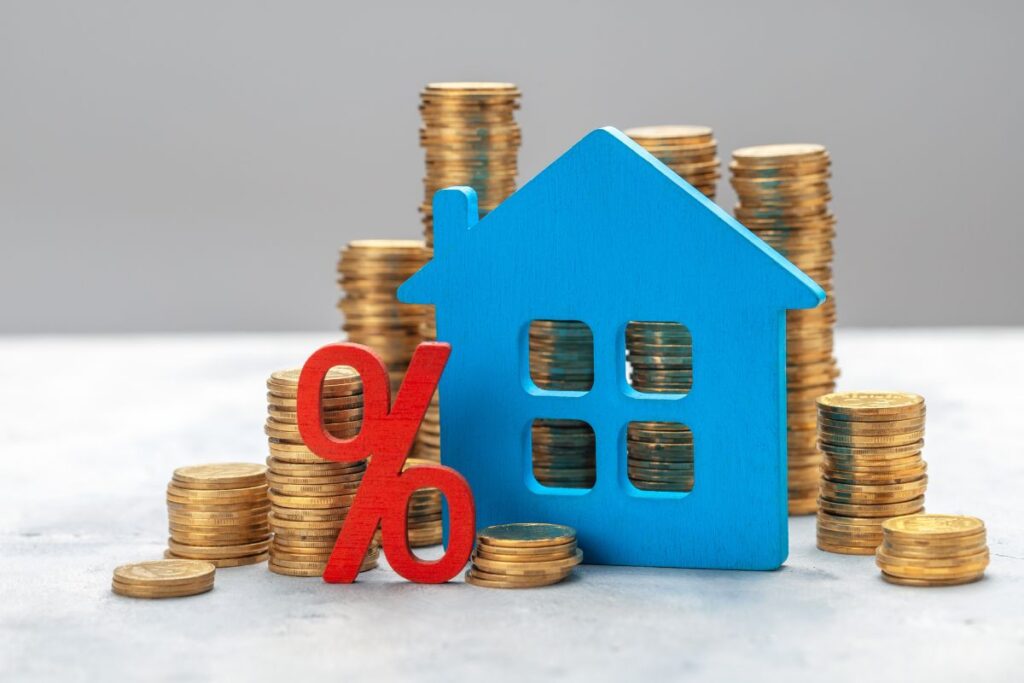Mortgage Loans: Fixed vs. Variable rates and how to choose the right one
Discover mortgage loans: fixed vs. variable rates and how to choose the right one. Expert advice for the best mortgage decision.

Mortgage loans play a vital role when purchasing a home. Homebuyers often face the decision between fixed and variable rates. This article explains both options, outlines their benefits and risks, and guides you through choosing the right mortgage for your needs. The aim is to provide clear, practical advice to help you make an informed decision.
Understanding mortgage loans
A mortgage loan is a long-term financial commitment. Lenders provide the funds to buy property, and borrowers repay the loan with interest over a set period. The interest rate can be fixed or variable. Understanding the basic structure of mortgage loans is essential before comparing the different rate options.
Mortgages are one of the largest debts many individuals ever take on. The repayment period can extend up to 30 years, making the choice between fixed and variable rates highly significant. Borrowers should weigh factors such as financial stability, market trends, and personal risk tolerance.
Fixed mortgage loans explained
Fixed mortgage loans have an interest rate that remains unchanged for a specific period. Borrowers enjoy stable repayments over the term of the fixed rate. This certainty is attractive to those who prefer budgeting with predictable monthly expenses.
A fixed rate mortgage can last for two, three, five, or even ten years. Once the period ends, the rate may revert to a variable rate or the borrower may opt for another fixed rate period. The key benefits include:
- Stability in monthly repayments
- Protection from interest rate increases
- Easier budgeting over the fixed term
While the stability is beneficial, fixed rates may initially be higher than variable rates. They may also come with early repayment charges if you decide to switch loans during the fixed period.
For further reading on the benefits and limitations of fixed rate options, consider visiting MoneySavingExpert’s guide on fixed rate mortgages.
Variable mortgage loans explained
Variable mortgage loans, sometimes known as adjustable or tracker mortgages, have interest rates that can change over time. The rate may fluctuate according to the movements of a reference rate, such as the Bank of England base rate.
The main advantages of variable rate mortgages include:
- Potential for lower initial interest rates
- Possibility of benefiting from falling interest rates
- More flexibility in some loan features
However, borrowers must be aware that variable rates can also increase. This means your monthly repayments might rise without notice. The unpredictability of future rates is the primary risk associated with variable mortgages.
Variable rate loans are ideal for individuals who can handle fluctuations in their monthly budgets. They work best when market conditions are stable or trending downward. To gain deeper insight into current market trends and forecasts, you might explore information on the Bank of England website.
Comparing fixed and variable rates
Choosing between fixed and variable mortgage loans requires a careful comparison of pros and cons. The decision is influenced by personal financial circumstances and market predictions. Below are some key points to consider:
- Predictability vs. flexibility: Fixed rates offer consistency, while variable rates can offer savings when market conditions are favourable.
- Budgeting: If you need stable repayments, fixed rates are preferable. Variable rates may suit those with flexible budgets.
- Market conditions: In a rising interest rate environment, a fixed rate can protect you. Conversely, in a declining or stable market, a variable rate may be more cost-effective.
- Long-term plans: Consider how long you plan to stay in the property. Short-term borrowers might lean towards variable rates, while long-term homeowners may prefer the security of fixed rates.
The choice between fixed and variable rates involves weighing the certainty of fixed repayments against the potential savings of a variable rate. To support your decision-making process, reviewing mortgage comparison tools on GOV.UK can provide additional perspective.
Factors to consider when choosing a mortgage
Selecting the right mortgage loan is not solely about the interest rate. Several additional factors can influence your decision:
- Personal financial stability: Evaluate your income, job security, and future financial plans. A stable income supports the case for a fixed rate, while a variable rate might be acceptable for those with higher risk tolerance.
- Interest rate trends: Research current trends and forecasts. Economic indicators and central bank policies influence these trends.
- Loan features: Consider overpayment options, early repayment charges, and flexibility in altering the loan terms. Some fixed rate mortgages allow limited overpayments, while variable ones might offer greater flexibility.
- Initial fees and costs: Compare arrangement fees, valuation fees, and legal costs across different mortgage products. Sometimes, a lower interest rate can be offset by higher fees.
- Repayment period: Determine how long you intend to hold the mortgage. A longer term might increase the significance of small rate differences.
- Risk tolerance: Understand your ability to handle potential rate increases. Variable mortgages carry the risk of future rate hikes, which can affect your monthly outgoings.
These factors combine to create a personalised profile that helps determine the most suitable mortgage option. It is advisable to seek independent financial advice if you are uncertain about your choice.
Tips for making the right decision
Deciding between fixed and variable mortgage rates involves more than just comparing numbers. Here are some tips to guide you:
- Analyse your budget carefully: Calculate your monthly outgoings and leave room for possible increases if you opt for a variable rate.
- Review market trends: Stay updated with reliable sources. Regularly check reputable websites such as the Financial Conduct Authority for current mortgage news.
- Consider future plans: Reflect on your long-term plans. Are you planning to move soon, or do you intend to stay in the property for many years?
- Speak with experts: A mortgage broker or financial advisor can provide personalised advice tailored to your circumstances.
- Compare multiple offers: Use online comparison tools to review different mortgage products side by side.
- Read the fine print: Understand the terms and conditions of each mortgage offer. Look out for any clauses that might affect future flexibility.
For those looking for more comprehensive information on loans and financial products, visit this page on our website.
Making a decision based on financial goals
When comparing fixed and variable mortgage loans, your financial goals should take centre stage. Consider the following scenarios:
- Security and long-term planning: If you value certainty and plan to hold your property for many years, a fixed rate might be the best option. The stability in repayments can help with long-term financial planning.
- Optimising cost in a stable market: If you are confident that interest rates will remain low or decline, a variable rate could result in significant savings. However, it requires the ability to adjust your budget if rates rise.
- Short-term ownership: For those who plan to sell or refinance within a few years, a variable rate mortgage might be more attractive, even if it comes with some risk. The potential for lower initial rates can provide cost savings over a shorter period.
- Flexible repayment options: Some borrowers might prioritise flexibility over fixed interest rates. Variable rate products often offer greater freedom in terms of overpayments and adjustments, which can be a major advantage if your financial situation changes.
Understanding your own financial goals, risk tolerance, and future plans is key. Balancing these aspects with the nature of the mortgage product can help you avoid financial strain and ensure a smoother repayment process.
The impact of economic factors on mortgage rates
Mortgage rates do not exist in a vacuum. They are affected by broader economic conditions such as inflation, economic growth, and monetary policy. Here are some economic factors that can influence mortgage rates:
- Inflation: Higher inflation can prompt central banks to increase interest rates, which in turn can lead to higher mortgage rates.
- Economic growth: In times of robust economic growth, demand for credit may rise. This increased demand can drive up interest rates.
- Monetary policy: Central banks use interest rates as a tool to control the economy. Decisions by the Bank of England, for instance, have a direct impact on mortgage rates.
- Global financial conditions: Economic uncertainty or global crises can lead to shifts in interest rates as investors seek safe assets.
It is important to note that while external economic factors influence both fixed and variable rates, their impact is often more immediate on variable rate products. Fixed rate products offer protection from such fluctuations, albeit sometimes at a premium.
Case studies: Choosing the right mortgage
Consider two hypothetical scenarios:
Case study 1:
Jane is a first-time buyer with a stable job and a fixed monthly income. She plans to stay in her property for at least 20 years. Jane values predictability and is not keen on financial surprises. In her case, a fixed rate mortgage offers the security she needs. Even if variable rates drop in the future, Jane’s budget benefits from the consistency of her payments.
Case study 2:
Tom is a young professional with a dynamic career and fluctuating income. He is comfortable with a degree of uncertainty and is keen to take advantage of lower initial rates. Tom chooses a variable rate mortgage. His decision is based on the possibility of lower payments if the Bank of England keeps rates low. However, Tom remains aware of the risks and has contingency plans in case rates increase.
These examples illustrate that the ideal mortgage product depends on individual circumstances. Prospective buyers should consider their financial stability, long-term plans, and the current economic environment before making a choice.
Evaluating the long-term costs
When comparing fixed and variable mortgage loans, it is crucial to evaluate not just the initial interest rate, but also the overall cost over the life of the mortgage. Consider the following steps:
- Calculate the total repayment amount for each option over the expected term.
- Factor in potential rate increases for variable loans and compare them with the stable payments of fixed loans.
- Include additional costs such as arrangement fees, valuation fees, and any penalties for early repayment.
- Use online mortgage calculators to simulate different scenarios and assess how changes in interest rates may affect your monthly budget.
By assessing the long-term costs, you gain a clearer picture of how each mortgage type fits with your financial goals. Making an informed decision can lead to substantial savings over time.
Practical advice for first-time buyers
First-time buyers may find the decision between fixed and variable rates particularly challenging. Here are some practical steps to ease the process:
- Start with a budget: Clearly outline your income, expenses, and how much you can comfortably afford for monthly mortgage payments.
- Research extensively: Look for reviews and guides on reputable websites such as GOV.UK and MoneySavingExpert.
- Consult a mortgage broker: A professional can help you compare different products and explain the fine details of each mortgage type.
- Attend property fairs and financial seminars: These events often provide insights into current market trends and offer the opportunity to ask questions.
- Take your time: Do not rush into a decision. Compare several mortgage offers and carefully read the terms and conditions before committing.
Following these steps will empower you to make a decision that aligns with your long-term financial plans.
The role of expert advice
Even with all the available information, expert advice remains invaluable when choosing a mortgage loan. Financial advisors and mortgage brokers can offer tailored advice based on your individual financial situation. They can help you understand the intricacies of fixed and variable rates, and highlight any hidden costs in the mortgage contracts.
Expert guidance is especially important in a fluctuating market. They can provide up-to-date insights and forecasts, which may not be immediately obvious from standard comparison tools. If you are unsure about which mortgage product suits you best, consider booking a consultation with a professional advisor.
Navigating market changes
Market conditions can change rapidly, and staying informed is key. Economic reports, changes in the Bank of England base rate, and new government policies can all impact mortgage rates. Here are some ways to keep abreast of market changes:
- Subscribe to newsletters from reputable financial websites.
- Regularly check updates from regulatory bodies such as the Financial Conduct Authority.
- Follow news from established financial newspapers and websites.
- Attend local financial seminars or webinars focused on property finance.
Staying informed will not only help you decide on your current mortgage but also prepare you for any future refinancing or property purchase decisions.
Conclusion
Choosing between fixed and variable mortgage loans is a decision that requires careful consideration of your personal circumstances and the wider economic environment. Fixed rate mortgages offer stability and predictable repayments, ideal for long-term financial planning. Variable rate mortgages may provide lower initial rates and flexibility, but they come with the risk of fluctuating repayments.
By understanding the differences, evaluating long-term costs, and seeking expert advice, you can make a choice that best meets your needs. Always compare offers, read the fine print, and stay informed about market trends. Whether you prioritise stability or flexibility, the right mortgage will support your homeownership goals and long-term financial well-being.
For more insights on mortgage options and related financial products, visit this page on our website.




